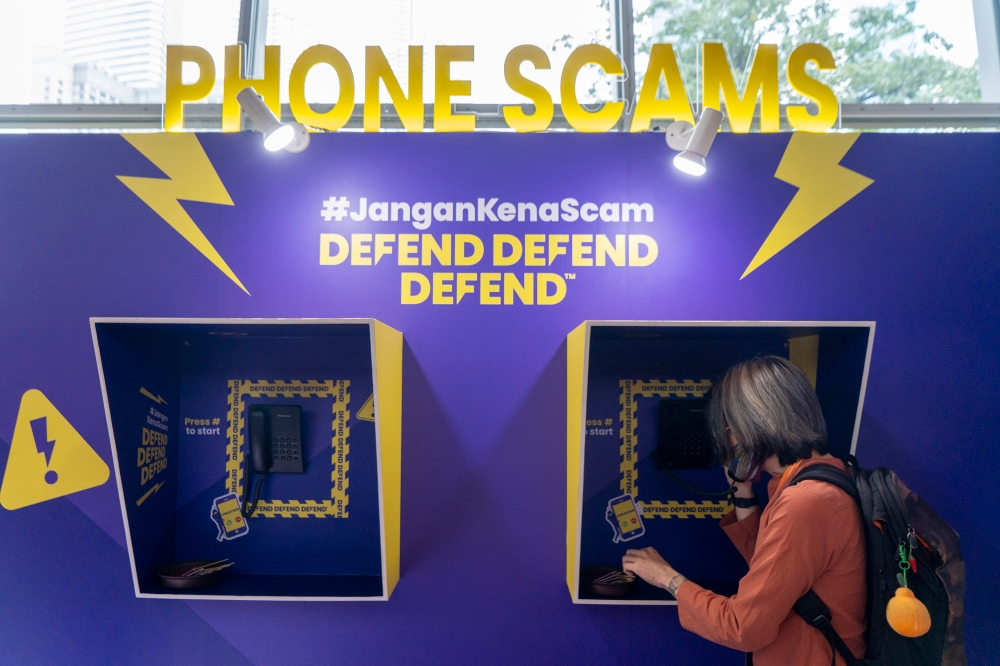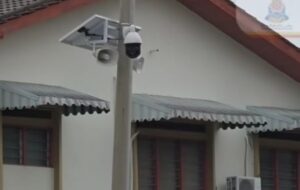KUALA LUMPUR, Sept 6 — With RM1.58 billion lost to scams last year and RM1.12 billion in just the first six months this year, Malaysia is scrambling for answers. Japan has a few.
Shigeru Yotoriyama, a former director of Japan’s national police division investigating scams, shared how authorities and the private sector in Japan are working together to stop scam victims from losing money:
Capping ATM withdrawals for older people
“At the request of the police, more than 280 financial institutions across Japan have lowered their daily ATM withdrawal limits from the accounts of elderly customers,” the retired senior police officer said at the recent 2025 ACFE Fraud Conference Asia-Pacific here.
As a countermeasure mainly against scams involving purported “refunds”, Yotoriyama said over 400 banks had also at the police’s request suspended ATM transfers from the accounts of older people, if they had not made any ATM transfers for more than a certain period of years.
In April 2025, The Japan Times reported Osaka’s prefectural government as having introduced a new law to require banks to impose a daily money transfer limit of ¥100,000 (RM2,850) on ATM users aged 70 and above, if they had not made such transfers in the last three years.
This new limit will take effect this October in Osaka, the prefecture where 70.9 per cent of scam victims of the ¥6.4 billion special fraud cases there last year were aged 65 and above.
In Japan, 45 per cent of the 20,951 victims of the ¥72.15 billion special fraud cases nationwide in 2024 were those aged 70 and above.
In March 2025, Japanese news outlets The Japan Times and The Mainichi reported that Japan’s police is considering setting a maximum ¥300,000 daily limit on ATM withdrawals and transfers for those aged 70 and above.
Osaka is also the first in Japan to ban those aged 65 and above from using ATMs while being on a phone call, as scammers typically target them and make them transfer money while on the phone.

Japan’s older people are often targeted in ‘special fraud’ cases, where scammers impersonate family members or officials to get them to send money to them. — Picture by Shafwan Zaidon
Identity verification when opening bank accounts/buying an internet-only SIM card/going on dating app
“The Japanese government has decided to make it mandatory for financial institutions and credit card companies to verify customers’ identities for account opening by scanning IC chips in the My Number identity cards or driver licences,” he said, referring to a Japanese identity card that has a microchip just like Malaysia’s MyKad.
“The new rule is designed to prevent fraudulent accounts from being opened under stolen identities,” he said.
The Japan Times in June said this new rule for online account openings will start in April next year, as the current method of using photographs or photocopies of identity documents were prone to forgery.
Yotoriyama said the Japan government is planning to require identity verification when customers sign up for data-only or Internet-only SIM cards, as these can also be used to make scam phone calls.
He said Japan’s police had in September 2024 requested dating app operators to tighten customer identity verification procedures, including scanning the IC chips in the My Number identity cards.
He noted that 30 per cent of online romance scam victims last year were initially contacted by scammers through dating apps.
Freezing bank accounts used for scams and giving frozen funds back to scam victims
When Japan’s police provide information on bank accounts used for fraud, financial institutions “immediately freeze the accounts 24/7”, he said.
“Financial institutions freeze bank accounts of the listed people, even when those accounts have not been confirmed as being used for fraud, and refuse to open new accounts for the listed customers,” he said when describing how banks use the police’s list of frozen account holders.
In a scheme implemented for over 15 years and based on the law, the balance of funds in the frozen accounts are distributed to scam victims who had been tricked into transferring their money, he said.
Over ¥24 billion (US$16 million) were distributed to scam victims in Japan under this scheme in fiscal year 2023, he said.
He said Japan is also planning to tighten its laws against the selling and buying of bank accounts.
Banks to detect suspicious transactions
This includes:
- Transactions from the same terminal that was previously used for fraud
- Inconsistency with information given by the account holder or past access information
- Transactions inconsistent with account holder’s actual situation/ purpose of using the account

Japan encourages older people to block phone calls from international phone numbers to avoid scammers. — Picture by Firdaus Latif
Suspending phone numbers used for fraud and blocking international phone numbers
On Japanese police’s requests, telecommunication companies in Japan have since 2024 suspended thousands of mobile phone numbers, landline phone numbers, Voice over Internet Protocol (VoIP) numbers that were used for fraud.
He said this has resulted in scammers now trying to call their intended targets “by spoofing caller IDs and displaying international phone numbers”.
He noted that 73 per cent of the nearly 64,000 phone numbers used in Japan for fraud in the first half of this year were international phone numbers.
“Therefore, police and telecommunication carriers are urging the public to use the free service to suspend incoming calls from international phone numbers, especially elderly people who are not expecting any international phone calls,” he said.
While telcos in Japan already voluntarily keep logs of their customers’ communication history, the government plans to make it mandatory to share and keep such data for a certain period.
Take it down: Social media platforms and messaging services to remove scammers’ accounts or content
Japan’s Information Distribution Platform Act requires social media platform operators such as Meta, X, TikTok, LINE to set up procedures to take down illegal or harmful content.
With many scam victims initially contacted over apps such as Facebook, Instagram, Line, Japan’s police had requested such app operators to delete users’ accounts that were used for fraud.
Removal of unregistered overseas cryptocurrency exchanges
He said Japan’s Financial Services Agency (FSA) had requested such exchanges to delete their Japanese-language websites, noting it is illegal to operate such exchanges without FSA registration.
He said Google and Apple had removed non-compliant overseas cryptocurrency exchanges from their app stores on FSA’s requests.






